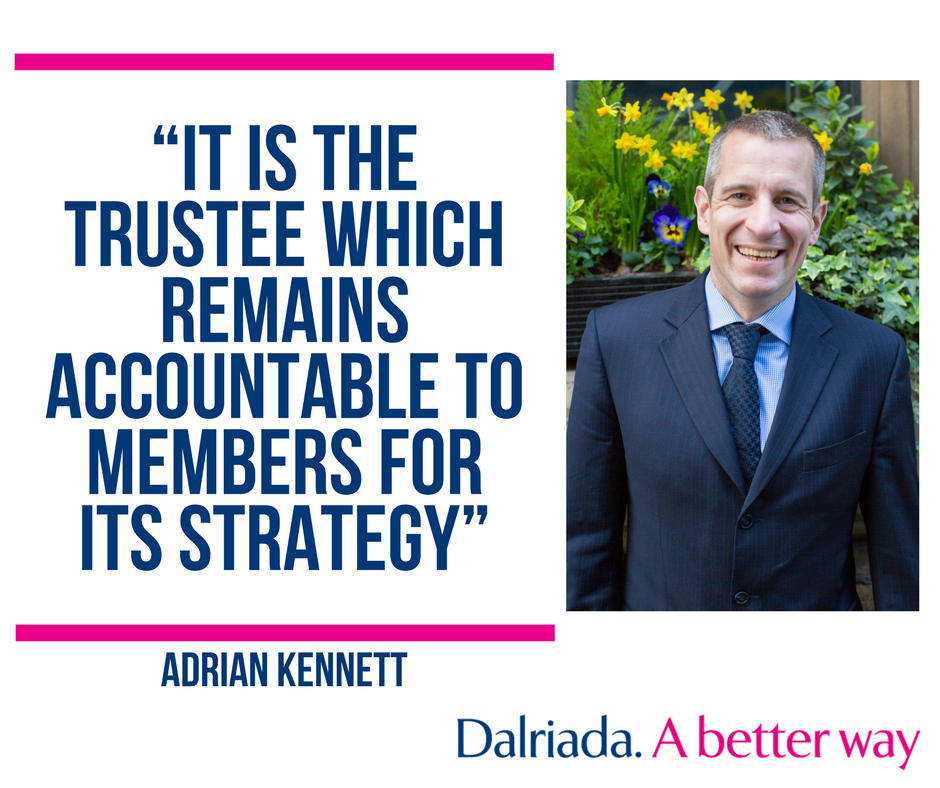
AVIVA – CAMPAIGN AGAINST PENSION SCAMS
Pension Life – representing hundreds of victims of pension scams – has been engaging with ceding providers to seek a solution to the failures of regulation and the law which continue to fail to halt the success of scams and scammers.
One of the earliest pioneers and champions of the fight to resist transfer requests into obvious and suspected scams – Aviva – has responded positively to the proposed campaign and come up with some excellent suggestions. If implemented promptly and given the support and cooperation of the regulators, government and law enforcement agencies, these solutions could go a long a way to fighting this scourge of the pension industry.
Coupled with Darren Cooke’s http://www.redcirclefp.co.uk/ excellent website and petition to ban cold calling, this could herald a new era where the public and the industry fight back against scams and help bring the scammers to justice. http://bancoldcalling.co.uk/
SUGGESTIONS FROM JOHN LAWSON OF AVIVA:
- Administrators and trustees to be given the right to block transfers indefinitely, subject to regulator/law enforcement agreement on a case-by-case basis.
- All occupational schemes should be required to appoint an independent trustee approved by the Pensions Regulator (this existed before the changes to pension tax law in 2006 and its removal is one of the reasons why it is now easier to set up small occupational schemes such as SSAS). The independent trustee should oversee matters such as the level of fees paid and that these are not excessive in relation to the value of the fund and whether investments made meet the prudent person test.
- Personal pension schemes can now be established by any regulated firm with permission to do so. Whilst fraud via personal pensions is a much lesser problem than via occupational schemes, additional oversight of schemes established by smaller FCA regulated firms would be useful, particularly in regard to the investments the scheme is holding on behalf of its members and the charges levied.
JOHN LAWSON, HEAD OF FINANCIAL RESEARCH, AVIVA
RE CAMPAIGN TO STRENGTHEN LAW AGAINST PENSION SCAMS
RESPONSE FROM ANGIE BROOKS OF PENSION LIFE DATED 14.11.2016
Dear John,
Thank you for setting out your position on pension transfers and scam prevention. I have transcribed your email below and added my comments in bold.
Angie
—————–
Regarding the campaign for greater rights for pension schemes and pension providers to block transfers to suspicious pension schemes, and additional obligations to investigate the receiving scheme before a transfer is made.
The law in this area is complex and evolving in response to cases brought before the courts. However, the Pension Schemes Act 1993 gives pension scheme members the right to transfer savings to another registered pension scheme, and requires the original pension provider to make any transfer within six months of the request being made.
I agree with your position that both the area and the law are complex and need to be not just clarified but reinforced urgently. The law has been failing for seventeen years and has resulted in many opportunities for the scammers to financially ruin thousands of victims. In 2009/10, a number of pension scams were launched including: Ark, Tudor Capital Management/Salmon Enterprises, KJK Investments/G Loans and Baxendale-Walker’s three: Lincoln Pensions Administration; Warwick Pensions Administration and A. Admin. Collectively, these schemes accounted for several thousand victims losing a quarter of a billion pounds’ worth of pension funds. For parliament and regulators to have failed to tighten up and improve the law for so many years is entirely indefensible.
The industry should have known exactly what their legal obligations were and there should have been no doubts or grey areas in respect of dealing with obvious or suspected scams posing risks to members. Pension scams had been operating as far back as 1997 and tPR had been warning the industry from time to time since 2002. On 13.7.2010, tPR Chair David Norgrove stated that: “Any administrator who simply ticks a box and allows the transfer, post July 2010, is failing in their duty as a trustee and as such are liable to compensate the beneficiary.”
Some ceding providers ignored tPR’s warnings well into 2013 – which was the first time there was any evidence of a few providers taking some initial inconsistent notice of tPR’s Scorpion campaign (see the Ark, Capita Oak and Westminster summary below). But sadly many continued to completely ignore the warnings and in August 2014, a Police officer was scammed out of his Police Pension and into the toxic London Quantum scheme. Far from Scorpion having any widespread effect, the multitude of scams and scammers continue to this day unhindered by tPR’s limited attempts to protect and inform the public.
In response to the increase in suspicious schemes being established, the industry campaigned for HMRC to tighten up the registration process as, by definition, if a scheme is not a registered pension scheme then the member does not have a statutory right to transfer. In response, HMRC did tighten up its scheme registration process and this subsequently reduced the number of suspicious transfers being requested.
HMRC did not do this until late 2013 – nearly fifteen years after the industry, HMRC and tPR all knew perfectly well that the registration process was woefully lax and open to abuse by scammers. It is disappointing that this campaign was not started many years earlier – or indeed that HMRC were so incompetent that it was even needed at all.
Before that happened, the pensions industry was already working closely with the Police
Not one single scammer has been prosecuted for scamming the public and since 2003 only four have been prosecuted for cheating the Public Revenue – including Tudor Capital Management directors Andrew Meeson and Peter Bradley. This sends out the wrong message to the scammers and has resulted in one of those involved in the Capita Oak, Henley and Westminster scams (well over 500 victims totalling over £20m worth of destroyed pensions) setting up an investment scam in the Cayman Islands which has accounted for another £20m worth of lost pensions.
Before that happened, the pensions industry was already working closely with the regulators
If the industry had been “working closely” with the regulators, why did ceding providers ignore David Norgrove’s warning that negligent box ticking must result in compensation for the victims?
Before that happened, the pensions industry was already working closely with government departments
In the past three years not a single government department has shown any interest whatsoever in pension scams and indeed the former pensions minister Ros Altmann simply referred to victims as “fools”. Former DWP Secretary Iain Duncan-Smith promised to help but only stole a bundle of documents from a victim and then reneged on his promises.
… to raise awareness of pension scams
There is no evidence that this worked as the scams simply increased from 2010 onwards – and there remain thousands of transfers into scams throughout 2013, 2014, 2015 and to the present day.
…and to establish a process for fast-tracking reporting of potential fraudulent activity via Action Fraud
Hundreds of victims have made reports to Action Fraud but all of these have been ignored, no prosecutions have resulted and the scammers have been left free to set up and run further scams.
Insurers and pension schemes are now blocking transfers to schemes that they consider suspicious, whilst at the same time reporting these schemes to the authorities.
That is good to hear, but this needs to be a uniform legally-enforceable statutory obligation rather than an optional exercise which only a few practice inconsistently if they feel so inclined.
However, there is a distinction to be drawn between what is potentially illegal activity and other activity that may be within the law but still poses a threat to someone’s pension savings usually because it exposes their savings to excessive investment risks or excessive fees. Some of those schemes who consider their schemes are legal have challenged pension schemes and providers that have blocked transfers via the Pensions Ombudsman and the courts and I would recommend you read those rulings and judgements to gain a greater understanding of the issues.
I am well aware of a number of POS determinations and the Justice Morgan ruling in respect of Hughes v Royal London – which was obviously a disaster for the cause of blocking suspicious transfers. What action is the industry taking to mitigate the risks this retrograde step has caused?
It would be useful for the law to be clearer on the rights of pension schemes and pension providers to block suspicious transfers, and the process for resolving those cases.
I agree absolutely and am preparing a complaint against the Pensions Regulator in respect of their long-standing failure to make this clear.
However, I don’t think it should be the role of providers and pension schemes to investigate suspicious schemes for a number of reasons:
Certainly it should not be solely down to ceding providers, but they are in the front line and they must comply with their legal obligations – as well as engage with the public, regulators and police to share intelligence on what is happening in the world of pension scams.
Firstly, it should be the role of law enforcement to investigate and prosecute illegal activity.
Agreed – it ought to be. But law enforcement is failing to address this widespread criminal activity and is leaving the scammers free to operate scam after scam. Evidence shows their track record has been dismal since 1999 and the scammers are still out there, scamming away.
It should be the regulators’ role to ensure that consumers are properly protected or at least warned about the risk of speculative investments or excessive fees.
You are absolutely right. But the regulators are omitting to fulfil this role effectively and this is why I am making a detailed complaint about their multiple, long-term failures.
There is no conclusive test for what is a suspicious activity and what is not. This is a matter for individual judgement.
It really ought to be down to basic common sense and this failed entirely and repeatedly in the case of thousands of transfers in the past few years – all of which should have been blocked. For example, not a single ceding provider in the case of £millions of transfers into Salmon Enterprises spotted that the trustees/administrators, Tudor Capital Management were under criminal investigation. Shouldn’t it be a requirement that the trustees and administrators are checked out to make sure they aren’t fraudsters? Also, in the case of Capita Oak and Westminster, not one single ceding provider checked that the sponsoring employer actually existed. These two schemes shared the same (non-existent) sponsoring employer and that in itself ought to have rung some alarm bells with all the ceding providers. But this is especially true of the two worst performers: Prudential and Scottish Widows who between them allowed £2,456,216.40 worth of transfers into two schemes with a mythical sponsoring employer.
Pension providers and pension schemes cannot be expected to identify correctly all suspicious and fraudulent activity all of the time.
One would have expected ceding providers to be suspicious when they suddenly received multiple transfer requests to a new scheme such as Ark, or new schemes using the same address as previous scams such as 31 Memorial Road, Worsley in the cases of Ark, Capita Oak, London Quantum et al.
I am therefore clear that pension providers should not be burdened with any additional obligations beyond our current contractual obligations in the case of personal pensions and trustees beyond their fiduciary duty to act in the best interests of their members.
I agree entirely that providers should not be burdened with additional obligations beyond their current contractual obligations. But they must put additional effort into complying with their existing contractual obligations – and the law must, as you have so rightly said, be made clearer.
Having said that, all of the large pension providers have invested considerable manpower and other resources in trying to stop or at least limit this activity.
This is good news – but there must also be some resources devoted to helping facilitate successful prosecutions and helping those who are financially ruined by scammers.
I will not share the exact details of due diligence processes as we have been clear that we will not make these public for the simple reason that it would make it easier for scammers to find ways to get round the system.
The scammers are perfectly well aware of the industry’s failings and loopholes and don’t need the ceding providers’ help in exploiting them as they already do this very successfully. However, behind the scenes there must be an early-warning system which shares intelligence throughout the industry to alert all trustees to active scammers and their current operations and tactics.
On the point about our ability to stop illegal activity, this has become increasingly difficult since the new pension freedoms were introduced last year.
I agree – a dreadful legacy from a dreadful chancellor.
From age 55, people can now access their pensions as cash and there is no longer any need for them to transfer their money to another pension scheme to invest in illegal or highly speculative investments, which is what most of this activity centres around. We have no right to know what people are doing with the money they take out of their pension, so our activities (for those accessing their pension at retirement) are limited to giving pension savers clear and strong warnings about the risk of scams and speculative investments.
It would be helpful to have copies of what Aviva (and all other ceding providers) give to pension savers so that this can be put clearly in the public domain.
Ultimately, a balance between personal freedoms (and the personal responsibility that goes with that freedom) and protecting the unwary needs to be struck. Where that balance point lies is a matter for government and regulators.
And that is the whole point. Both the government and the regulators are failing. Stephen Ward was recently given a “dressing down” by tPR for operating the London Quantum scam (the last in a long line of his other scams from Ark onwards). Scammers need to be stopped and brought to justice, not rewarded with a mild telling off which the likes of Ward will simply shrug off while they sip their champagne beside their swimming pools in Florida.
THE TOP TEN
| Capita Oak | Westminster | ||||
| Ceding
Provider |
Total Funds
Transferred |
Ceding
Provider |
Total Funds
Transferred |
||
| Prudential | £829,028.76 | Scottish Widows | £485,751.83 | ||
| Scottish Widows | £758,167.27 | Prudential | £383,268.54 | ||
| Standard Life | £616,607.68 | St. James’ Place | £291,180.00 | ||
| Aviva | £611,796.86 | Aegon | £254,305.63 | ||
| NHS | £578,547.02 | Metlife | £246,551.60 | ||
| Legal and General | £544,084.77 | Zurich | £123,495.74 | ||
| CSP | £320,088.42 | Dunlop Goodyear AVC | £105,137.88 | ||
| Scottish Life | £287,883.26 | MyCSP | £94,829.57 | ||
| Phoenix Life | £275,640.77 | Guardian SIPP | £92,082.86 | ||
| Aegon | £263,271.71 | Transact | £83,022.78 | ||




